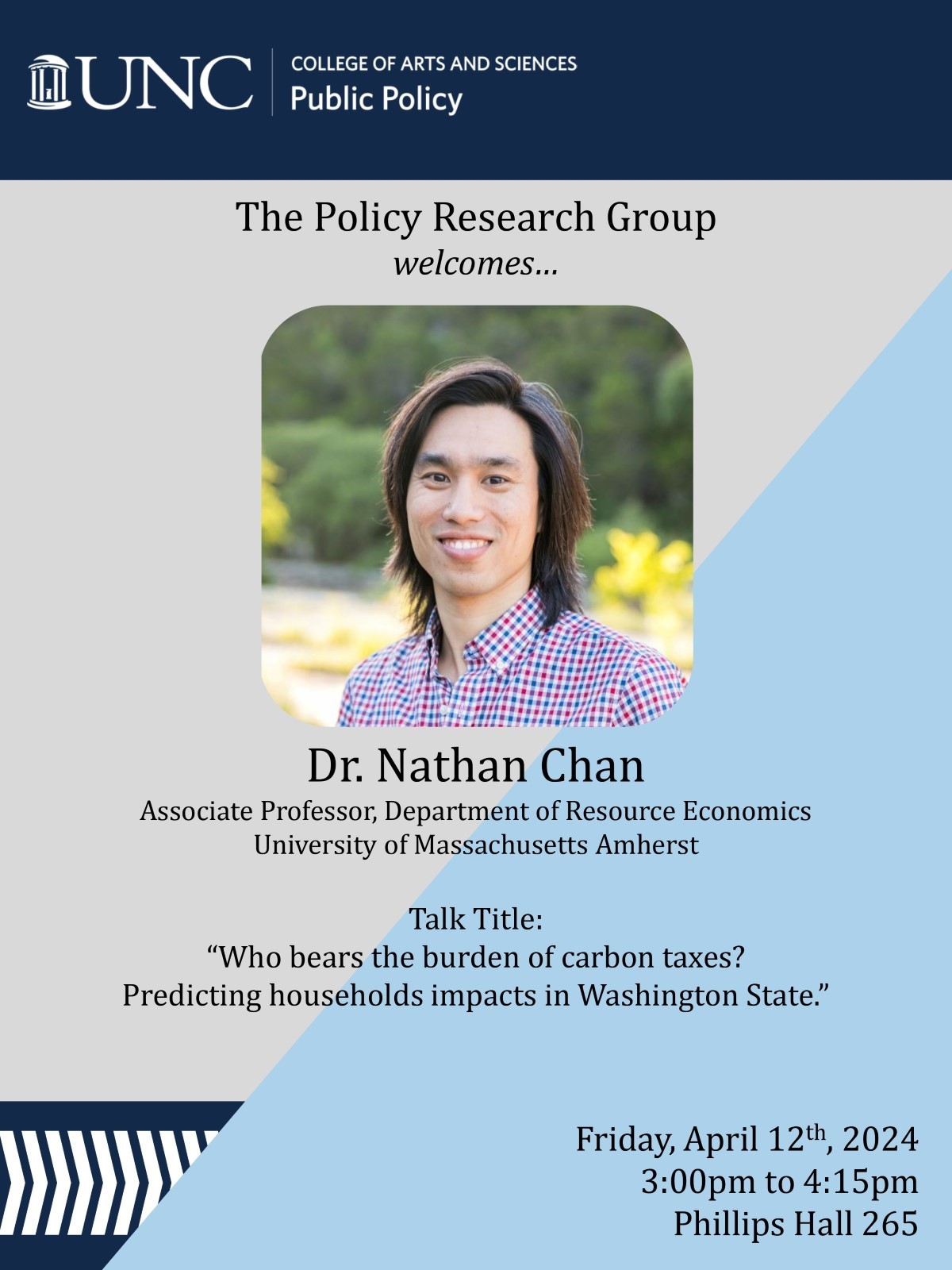PRG Talk on Apr 12
April 11, 2024

The Policy Research Group is excited to welcome Dr. Nathan Chan to Chapel Hill on April 12th! Dr. Nathan Chan is an Associate Professor in the Department of Resource Economics at the University of Massachusetts Amherst. The talk, entitled, “Who bears the burden of carbon taxes? Predicting households impacts in Washington State,” will begin at 3:00pm in Phillips Hall 265.
